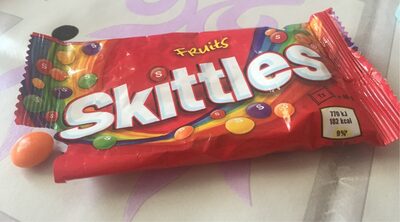
Barcode: 4009900522120
Skittles
DOUBTFUL
📝 Reason: The product contains ingredients with doubtful status due to unspecified sources or unknown ingredients. According to Islamic dietary laws, any doubt about the Halal status of an ingredient makes the product doubtful. Quran 5:3 prohibits consuming doubtful things. It’s recommended to look for products with clear Halal certification.
🏷️ Category: Snacks, Sweet Snacks, Cocoa And Its Products, Confectioneries, Chocolate Candies, Bonbons, Candies, Snacks Sucres
📄 Certificates: Vegetarisch
Ingredients:
Details
Understanding the Halal Status of Skittles
Skittles, the beloved fruit-flavored candy, has captured the hearts of many snack lovers around the world. However, for those following Halal dietary laws, determining whether Skittles are suitable for consumption can be a bit more complicated. While the Halal status of this product is categorized as DOUBTFUL, it’s essential to delve into the ingredients to understand why.
The Ingredients Breakdown
The ingredient list of Skittles comprises several components, with many having varying degrees of Halal certification. Let’s examine each one:
- Sugar – Generally considered Halal unless derived from Haram sources.
- Glucose syrup – Similar to sugar, it is generally Halal unless derived from Haram sources.
- Palm fat – A plant-derived fat, generally accepted as Halal.
- Citric acid – Usually considered Halal unless derived from Haram sources.
- Malic acid – Generally Halal unless derived from Haram sources.
- Dextrin – Considered Halal unless derived from Haram sources.
- Maltodextrin – Typically Halal unless derived from Haram sources.
- Flavorings – This ingredient raises concern as it is deemed doubtful due to unspecified sources.
- Modified starch – Generally accepted as Halal unless derived from Haram sources.
- Dyes E162 (Beetroot Red) – This natural dye is considered Halal.
- Dyes E163 (Anthocyanins) – Halal as it comes from natural sources.
- Unknown ingredient – Status is doubtful due to lack of information.
- E160a (Beta-Carotene) – Typically Halal as a plant-derived colorant.
- E100 (Curcumin) – Halal as it is derived from turmeric.
- Unknown ingredient – Status is doubtful due to lack of specifications.
- Acidity regulator – Doubtful due to unspecified sources.
- Trisodium citrate – Generally Halal unless derived from Haram sources.
- Glazing agent, Carnauba wax – Plant-derived and Halal.
Why Is Skittles’ Halal Status Doubtful?
The main reason for the doubtful classification of Skittles lies in certain unspecified ingredients, particularly flavorings and other unknown components. According to Islamic dietary laws outlined in the Quran (5:3), consuming products with uncertain Halal status can be problematic.
Islamic Guidance: For consumers who follow Halal dietary routes, it is essential to avoid any food items that have ambiguous ingredients or sources. Numerous reputable Halal certification bodies recommend opting for products with clear and transparent certifications.
Brand and Certification Context
While Skittles is classified under the category of Snacks, Sweet Snacks, Confectioneries, they do not carry a Halal certification. This further adds to the skepticism around their Halal status. In a market where dietary adherences are crucial, clear labeling and certification become imperative for consumer trust.
Though Skittles holds a vegetarian certification, it’s critical to differentiate between vegetarian and Halal as they do not always align. Hence, acquiring clear Halal certifications would be beneficial for brands keen on selling to a wider Halal-conscious market.
Conclusion
In conclusion, while some ingredients in Skittles can be classified as Halal, the presence of ambiguous components leads to a doubt regarding its overall Halal status. For those adhering to strict dietary laws, it is advisable to look for products with a clear and credible Halal certificate. In the case of Skittles, consumers might want to explore alternatives that explicitly confirm their Halal status.

